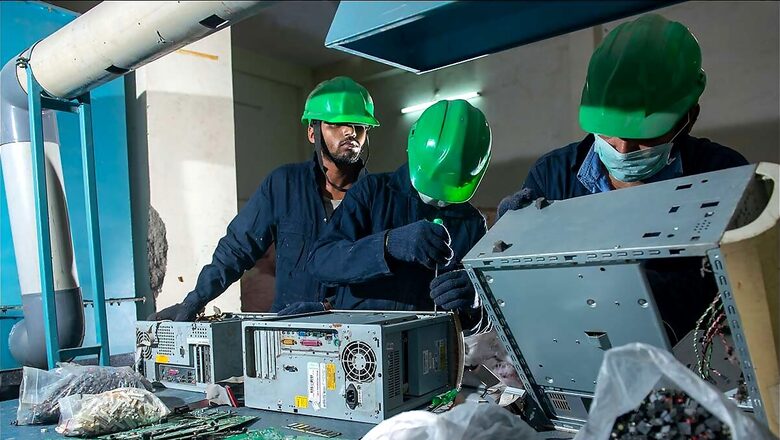
views
With a rapidly growing population and urbanization rate, India faces a huge problem in effectively and environmentally responsible managing its waste streams. India has actively embraced sustainable waste management strategies in recent years as a reaction to this issue, demonstrating a dedication to minimizing the environmental, social, and economic effects of its waste problems.
E waste management rules
The E-Waste Management Rules under E-waste (Management and Handling) Rules, 2011 mentions the ceiling limit for hazardous chemicals that are used in manufacturing electronic products. The rules also specify the procedure to obtain authorisation from the Pollution Control Board for handling e-waste.
India’s e-waste industry has undergone a number of changes recently, including increased commitment from manufacturers, expansion of the formal waste management sector, the rise of producer responsibility organizations (PROs), and initiatives to develop indigenous technologies for handling and recovering various e-waste components.
Sustainability and women entrepreneurs
India’s persistent commitment to sustainability and the quick growth of its startup ecosystem are key ingredients in delivering the desired results, which include employment growth, business development, and national growth. By using their unique abilities and views, female entrepreneurs are driving change in the waste management industry.
The expanding female workforce in India has been giving sustainability a high priority inside their businesses, significantly advancing our sustainability goals, particularly in the area of turning waste into value. Notably, at least one woman director was present in 29.5% of all startups registered with the Department for Promotion of Industry and Internal Trade, part of the Ministry of Commerce & Industry, and the Government of India in 2017. By 2022, this percentage will have grown remarkably to 47%.
Emerging startups and waste management
Waste management activities are being dispersed across India as a result of the startup boom. Startups have increased their societal impact and influence in India by incorporating informal garbage collectors into the formal waste management system. This has given the waste management sector a distinctive and upbeat component.
A growing number of waste management startups are putting more and more of their attention towards finding better clean technology solutions. This is motivated by the knowledge that a sizable portion of trashed materials can be recovered, repurposed, or changed into new materials, goods, or sources of energy.



















Comments
0 comment